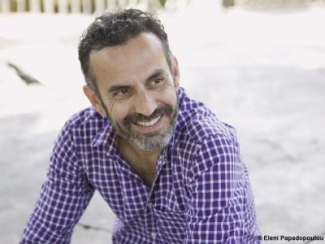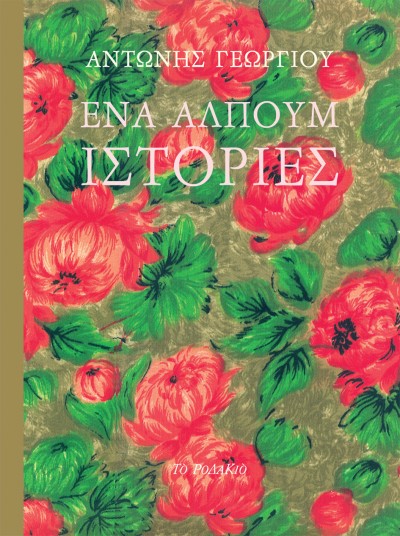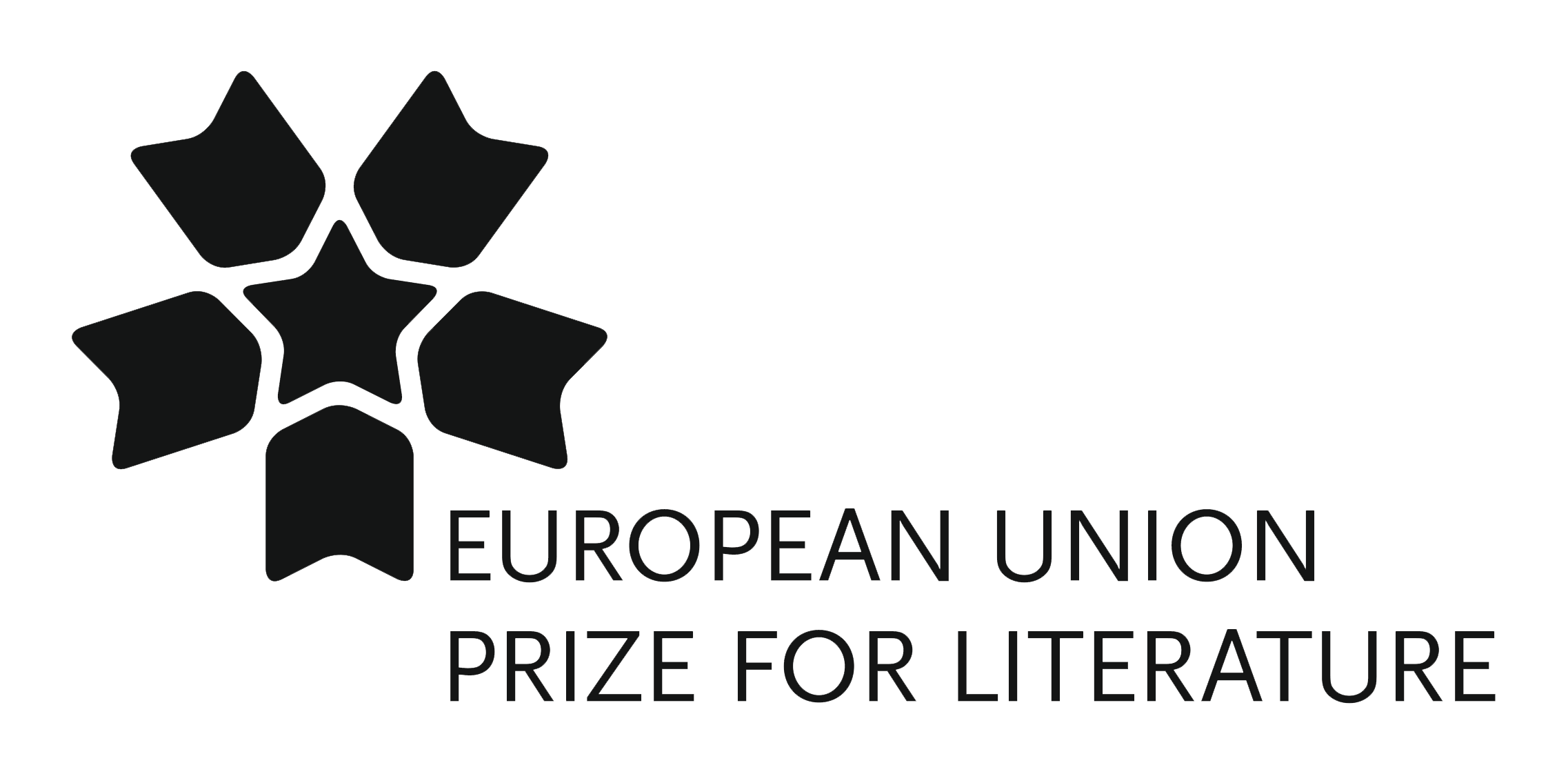Excerpt
people come, people go […] when his wife passed away, one of my grandmother’s brothers, Spyris, was left alone and his children arranged for a housekeeper to come from Thailand to look after him; it seems that the two of them got along well, not just well but very well! Spyris was a handsome man in his youth and he was still hale and hearty and one day he announced that he would marry the girl and then everyone was on his case, especially his youngest daughter who adored him and for whom he had a soft spot, “what will people say” and “she wants to get your money”; what money? what property? what little he had, he had already shared it between his children; he lived on his pension; he wouldn’t hear a thing and was getting ready for the wedding; one day, however, when his daughter blew up at him, “you’ve gone completely mad, you’ve made us a laughing stock, can’t you even think of your grandchildren who are ashamed to show their faces in the village?” he made up his mind and left for Thailand where he got married and lived for a long time without ever coming back, so as not to bother anyone, not have anyone feel ashamed of him; he died there; then, his wife called his children to ask if they wanted her to send the body back to Cyprus, otherwise she would cremate him there as was their custom, they told her to cremate him, I don’t know if it was out of spite, bitterness or jealousy or if they just felt that he now belonged to his new country and to that woman who stood by him until the end and who was on his side and shut his eyes, in any case, he was cremated and his ashes are floating somewhere in Thailand; only grandma never accepted this and she still remembers her brother every once in a while “but burn him? burn my brother?” “all these, burials and stuff, are fabrications of the priests; even Marx said so, ‘the opium of the people’” “don’t talk like that Costaki, we should have brought him back or at least they should have buried him, not burned him; burn him? burn my poor brother? do they ever hold a Trisagion for him at that place where he is, or even a memorial service?” “you do grandma, you remember him, isn’t it the same?” “yes, but at that place where he died, nobody does! and you my babies, will you sometimes hold memorial services for me when I die? will you ever remember me?” “will you remember me when I die?” I remember my grandmother, Maroullou, saying this to me once; she raised me; up to the age of ten I lived in her house; every day after school I went to grandma’s, my dad, my mom used to work till late, I even had my own room at grandma’s and slept there sometimes and after grandpa died I stayed with her almost every night until a few years later she followed him; one night, she turned around and said to me “will you remember me sonny when I die? will you remember me at all, Constantino?” “don’t talk like that grandma, don’t talk like that, you are not going to die,” I said and started to cry, “don’t cry kiddo, this is the will of God, we are all going to die one day, but you should remember me,” the more I listened to her the more I cried, I was wailing, I couldn’t stop, I was beside myself, she completely lost it before she was able to calm me down, “ok, ok, I won’t die,” she said, “hush, hush, don’t cry, I told you, I promise I will never die!” I took her promise to heart and went to sleep, “I won’t die!” she said, I was a young boy, I believed her [an album of stories his brother was promised a year after grandma died, early 2010; they took flowers, candy, a ring and went to the bride’s house, him, his mother, his sister, his cousin and the groom of course; it was somewhat awkward in the beginning but the in-laws made them feel welcome; they left late, at midnight, not everyone, his brother stayed there, as was the custom, he would stay at his future in-laws house with his wife until they could have their own house; strange custom, he would never follow it himself, even though he knows that he will never have to decide about something like that; in a few months’ time they would normally have the engagement, then the wedding, then the christenings, isn’t this “a man’s destiny,” just like grandma used to say? happy times but also a lot of running about and a lot of photos too, a lot of new photos; this was probably his mum’s idea; he found her one day in the living room perplexed and examining a box, “come help me”, “what is this?” he asked her, it was a digital photo frame DPF 7901, 7" and a new design, no less; she told him that she went to buy new albums to sort out the old ones, to put in some scattered photos she had here and there but mostly to “keep” them if we need them “especially now with the wedding” and the saleswoman, a nice young lady, told her to “forget” about albums, now there are computers, CDs, or if she wanted there are these electronic photo frames “did you know that you can even put 100 photos in them, not just 100 but many more,” she tried to explain to him that “they will change on their own, I mean, one will be on display and then the other one will come on top,” she did not seem to understand exactly what she was saying but she seemed excited at the prospect of the photos alternating! in any case, she needed his help, “she also told me that if I want I can put in old photos, but you have to do something with them first on your computer…”, “they have to be scanned”, “yes, that’s what she said! well, there’s nothing you don’t know! I will need your help and I want you to put both the old and the new photos together, I want them all together, jumbled like we have them in our albums!”] one day I gathered all the albums my mom kept in the closet, old albums, the big ones with the hardcovers, some multi-coloured and flower-patterned, others with pictures of Cyprus landscapes or with couples in each other’s arms, I also took some smaller ones that they used to give us for free with ‘every film development,’ this was then, now very few people print their photos, they are left on CDs or computers and we forget them there, while those albums you opened them and mixed up images would leap in front of your eyes, from engagement parties, weddings, christenings, birthdays, celebrations even break-ups were sometimes there! just like in one of my mum’s albums, that had a picture of a couple who got divorced down the road and one day that the abandoned wife came to visit she saw it and took the scissors and cut out her ex-husband leaving herself alone in the photo leaning her shoulder on the gap where her husband used to be ‘individual’ photos, the ones that supposedly needed eight days to be developed, the ones you had to pose for at the studio, the girls with a finger on their cheek or resting their chin on their hand, the men in military uniform or suit and tie but also family photos with grandparents, parents, children, lots of children and, just like the albums, these photos were the photos of a lifetime and sometimes more since each and every one of us had their ancestors and descendants in them; children in one photo were adults with children of their own in the next, young people boldly looking at the lens and then their future a little further down, tired and crowded in their present, and, just like my mum who also placed new photos in between the older ones, you saw some people from page to page, from photo to photo get taller, gain weight, lose their hair or the glow of their faces; have you seen the girls on the previous page? on the right, in heels, is my mother, this was right after she stopped wearing black for my grandfather and before she put them back on again for my grandmother who would pass away soon after, she didn’t know that then, look at them, they had gone to the village festival, saw the photographer and decided to immortalise their youth and whatever that always means, dreams, enthusiasm, fear, expectations; my mother, these girls, were later burdened with years, stories, life and their albums were filled with so many other photos of themselves and the people who were entangled in their years, some came and stayed, others just passed through, some scattered photos were left here and there; thus strangely mixed up in these old scrapbooks, people, ages, eras and places in a tangle but, isn’t our life, in the end, nothing but a tangle of stories? that we sometimes remember, tell, write and entitle, An Album of Stories, and they seem as one story, the story of each of us or all of us; isn’t our whole life nothing but an album of stories? Copyright © by Yiola Klitou


